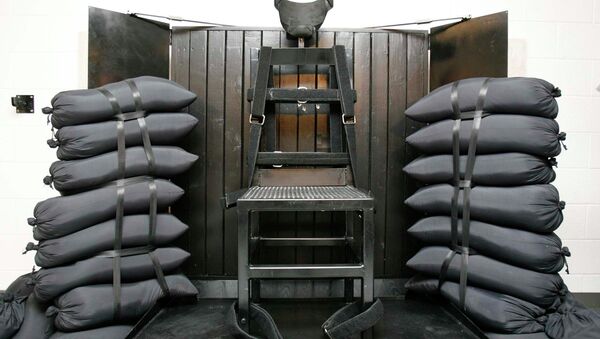WASHINGTON (Sputnik) — A law passed in the US state of Utah to reinstate firing squads as a form of execution is a step backwards from repealing cruel and unusual punishment, American Civil Liberties Union Public Policy Advocate Anna Brower told Sputnik.
“That our legislature has advanced this bill represents a huge missed opportunity to have a discussion about whether the death penalty, regardless of method, is right for Utah,” Brower said on Wednesday.
“Rather than move us in a positive direction, this action merely attracts widespread negative attention to our state, making us look both backwards and brutal, when Utahns are neither,” she added.
On Tuesday, the Utah legislature passed a bill 18-10 that would allow executions to be carried out by firing squads if chemicals used in lethal injection cocktails to kill prisoners are not available. Utah’s governor must sign the bill in order to become law.
In the European Union, where the death penalty is banned, companies have been prohibited from exporting the main ingredients used in lethal injection cocktails in the United States. This has resulted in the delay of executions and a number of botched execution attempts.
The ACLU alongside other human rights organizations are against the death penalty in the United States, arguing it is in violation of the US Constitution’s Eighth Amendment ban on cruel and unusual punishment.
Browser noted that the decisions about who lives and who dies in the United States are largely dependent upon the skill of their attorneys, the race of the defendants and of their victim, the defendant’s socioeconomic status and where the crime took place.
“Such infrequent, arbitrary and discriminatory administration of the death penalty is the very definition of a failed system,” Brower said.
Thirty-five executions were carried out in the United States in 2014, according to the Death Penalty Information Center. Nine prisoners are on death row in Utah at present. Through a loophole in the law, the last execution by firing squad in Utah was carried out in 2010.



